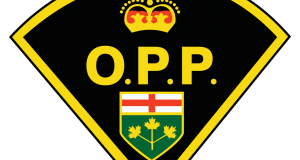 Earlier this week, Auditor General Karen Hogan released her long-awaited report on the costs associated with the development of the much-derided ArriveCan app. The report is a scathing indictment of the government’s procurement process during the early Covid-19 pandemic, and their reliance on expensive consultants that don’t give Canadians value for the money spent.
Earlier this week, Auditor General Karen Hogan released her long-awaited report on the costs associated with the development of the much-derided ArriveCan app. The report is a scathing indictment of the government’s procurement process during the early Covid-19 pandemic, and their reliance on expensive consultants that don’t give Canadians value for the money spent.
The purpose of the ArriveCan app, released in April 2020, was to track health and contact information for people entering Canada during the COVID-19 pandemic. At a time when traveling between nations was heavily restricted, ArriveCan was touted as a way to simplify the process. It was also meant to allow travelers to make customs and immigration declarations easier.
The Auditor General’s report indicates that an estimated $59.5 million was spent on the app, with a significant portion handed to consulting companies. Estimated is the operative word here, as one of the key findings from the AGs office is that final cost of the ArriveCan app is impossible to determine, due in part to poor financial record-keeping from those involved in its development. The AGs conclusion ultimately states the following:
“Overall, we concluded that the Canada Border Services Agency, the Public Health Agency of Canada, and Public Services and Procurement Canada did not manage all aspects of the ArriveCan application with due regard to value for money. Deficiencies in contracting and procurement, documentation, and management of deliverables also made it impossible to determine the actual cost of the application.”
This is a serious issue that paints a disturbing waste of taxpayer’s money from the start of the pandemic. While that estimated $59.5 million is AG Hogan’s best guess as to the actual amount spent to develop the app, it’s the lack of documentation that makes it so difficult to figure out exactly what was spent.
One of the core issues the Auditor General’s report identifies is, once again, the government’s over-reliance on consulting firms and sole-source contracts. In her report, she flags serious concerns with GC Strategies, a consulting firm that only lists two employees, was given a sole-source contract for the app in April 2020. The AGs report notes that GC Strategies was responsible for an estimated $19.1 million for the total cost of the app, and it’s not exactly clear what work GC Strategies actually completed, or even who hired them.
The government has a serious problem in developing these sorts of contracts that cost taxpayers an immense amount of money but don’t provide value for what has been spent. The AGs report clearly states “We estimated that the average per diem cost for the ArriveCan external resources was $1,090, whereas the average daily cost for equivalent IT positions in the Government of Canada was $675.” Per diem costs shouldn’t be twice as expensive as the equivalent of an employee’s entire days’ work. Outsourcing and sole source contracting is bleeding taxpayers dry. The government continues to hire companies like KPMG to ironically advise them on how to cut spending, but in reality, they could cut spending by not hiring expensive firms to do work the public service could do for a fraction of the cost. While the Conservatives will continue to make hay out of this issue, they are throwing stones in a glass house, considering their history with firms like Deloitte and hiring IBM to run the Phoenix disaster, which has cost billions.
AG Hogan’s report should be the wake-up call needed to realize that hiring consulting firms and sole sourcing contracts is almost always a huge waste of taxpayer dollars. It’s frustrating to see this kind of money squandered on ArriveCan.
The RCMP is currently conducting an investigation into misconduct allegations of the ArriveCan app. It’s vital that we get to the bottom of exactly what went wrong throughout this entire botched process. Taxpayers deserve better than headlines about money wasted on consulting companies.
- Reflecting on the Challenges and Accomplishments of 2024 - December 19, 2024
- Carol Hughes – CRA Hack Needs a Thorough Investigation - November 13, 2024
- Carol Hughes – Is it Time to Get Tougher on Residential School Denialism? - November 5, 2024
 Wawa-news.com You can't hear the 'big picture'!
Wawa-news.com You can't hear the 'big picture'!
